Day 2 :
Keynote Forum
Salah Aref
Mansoura University, Egypt
Keynote: CLL risk stratification: Role of genetic mutation

Biography:
Salah Aref is currently working as a Professor of Hematology in Mansoura University, Egypt and Director of Mansoura University Oncology Center laboratories. He is also working as a Member in National Board for promotion of professors in hematology. He has published more than 60 papers in the field of hemato-oncology. He has received many awards from Egyptian National Academy of Science, Mansoura University and International Society of Laboratory Hematology. He is acting as an Editorial Board Member and Peer Reviewer of many peer reviewed international journals and authored many books.
Abstract:
Chronic lymphocytic leukemia (CLL) is clonal B cell neoplasm, most frequent in the old age. The clinical course is very heterogenous with the survival time ranging from months to decade. Recently, it was appeared that underlying this heterogeneity are genetic mutation disease progress. In recent years, the development of target therapy necessitates the determination of these generic mutations to tailor the therapy for each patient. In this presentation, we give spotlight on the genetic mutations in CLL and its role in affecting the patient course and treatment.

Biography:
Ryan S Robetorye has received his MD and PhD degrees from Baylor College of Medicine in Houston, Texas. He is board certified in Clinical Pathology, Hematology and Molecular Genetic Pathology and currently works as a Consultant at the Mayo Clinic in Phoenix, Arizona. He currently serves as the Medical Director of several clinical laboratories at the Mayo Clinic.
Abstract:
Within the past decade, nearly a dozen adult-onset inherited myelodysplastic syndrome (MDS) and leukemia predisposition syndromes have been identified. Individuals with inherited forms of hematologic malignancies are currently underdiagnosed due to the low frequency of cases and low level of clinician awareness of these syndromes. However, these individuals are increasing and likely to be encountered in clinical practice with wider adoption of NGS-based testing for the detection of prognostically significant or targetable genomic alterations in hematologic malignancies. Clinicians must increasingly recognize the possibility that some gene mutations identified in some genes may represent pathogenic germline mutations and initiate appropriate follow-up germline genetic testing. The increasing importance of recognition of germline mutations is evidenced by the inclusion of a new category in the 2016 revision of the WHO classification of myeloid neoplasms and acute leukemia designated classification of myeloid neoplasm with germline predisposition.
- Hematology|Hematologic-Oncology|Blood Disorders

Chair
Ryan Robetorye,
Mayo Clinic, USA
Session Introduction
Wei Dai
Southeast University, China
Title: Genes Directly Regulated By NF-Κb In Human Hepatocellular Carcinoma Hepg2
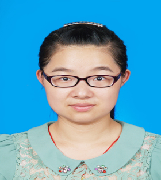
Biography:
Wei Dai has completed her Master’s degree from Anhui Agricultural University, China. She is a Doctor of the State Key Laboratory of Bioelectronics, Southeast University, China. She has published several papers in reputed journals with impact factor more than 15.
Abstract:
It has been well-known that over activation of NF-кB has close relationship with hepatitis and hepatocellular carcinoma (HCC). However, the complete and exact underlying molecular pathways and mechanisms still remain not fully understood. By manipulating NF-кB activity with its recognized activator TNFα and using ChIP-seq and RNA-seq techniques, this study identified 699 NF-кB direct target genes (DTGs) in a widely used HCC cell line, HepG2, including 399 activated and 300 repressed genes. In these NF-кB DTGs, 216 genes (126 activated and 90 repressed genes) are among the current HCC gene signature. In comparison with NF-кB target genes identified in LPS-induced THP-1 and TNFα-induced HeLa cells, only limited numbers (24~46) of genes were shared by the two cell lines, indicating the HCC specificity of identified genes. Functional annotation revealed that NF-кB DTGs in HepG2 cell are mainly related with many typical NF-кB-related biological processes including immune system process, response to stress, response to stimulus, defense response and cell death and signaling pathways of MAPK, TNF, TGF-β, chemokine, NF-кB and toll-like receptor. Some NF-кB DTGs are also involved in hepatitis C and B pathways. It was found that 82 NF-кB DTGs code secretory proteins, which include CCL2 and DKK1 that have already been used as HCC markers. Finally, the NF-кB DTGs were further confirmed by detecting the NF-кB binding and expression of 14 genes with ChIP-PCR and RT-PCR. This study thus provides a useful NF-кB DTG list for future studies of NF-кB-related molecular mechanisms and theranostic biomarkers of HCC.
Salah Aref
Mansoura University , Egypt
Title: Prognostic Impact Of CD200 And CD56 Expression In Adult Acute Lymphoblastic Leukemia Patients

Biography:
Salah Aref has completed his PhD from Mansoura University and Postdoctoral studies from Mansoura University, School of Medicine. He is the Director of Mansoutra University Oncology Center laboratories. He has published more than 60 papers in reputed journals and has been serving as an Editorial-Board Member of reputed journals
Abstract:
Salah Aref has completed his PhD from Mansoura University and Postdoctoral studies from Mansoura University, School of Medicine. He is the Director of Mansoutra University Oncology Center laboratories. He has published more than 60 papers in reputed journals and has been serving as an Editorial-Board Member of reputed journals
Bela Zutshi
Bangalore University, India
Title: E-AFEPB-Erythrocyte Abnormalities In Freshwater Fish, L.Rohita Exposed To Pollutants In Lakes Of Bangalore, India.
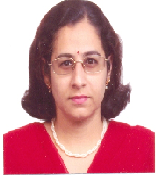
Biography:
Bela Zutshi has completed her PhD from Bangalore University, India. She is the Head of Department of Zoology, Bangalore University. She has served as a Member of State Level Environmental Assessment Committee, Government of Karnataka, India (2011-13). She has published more than 25 papers in reputed journals and written a book on status of lakes in Bangalore. She has handled two major research projects from UGC on fish toxicology and a minor project on biodiversity of blackbuck. She is Life Member of academic scientific bodies such as Asian Fisheries Society; Indian Science Congress; NEA; NESA and Aquatic Biodiversity Conservation Society, India.
Abstract:
Hematological study is important in toxicological research because hematological alteration is a good method for rapid evaluation of the chronic toxicities of a compound. Blood parameters are useful for the measurement of physiological disturbances in stressed fish and thus provide information about the level of damage in the fish. Genotoxic effect in erythrocytes of blood from fish, Labeo rohita reared for commercial purpose, was sampled from control site, Vengaiah Lake (A) and Yellamallappa Lake (B) during winter, summer and rainy seasons for a period of 24 months. The data of physicochemical parameters of water revealed high level of chemical oxygen demand, biological oxygen demand, turbidity, alkalinity and of trace metal content such as aluminium, cadmium, copper etc. and other pollutants in lake B (during all seasons) when compared to lake A, control site. Erythrocytic abnormalities including nuclear abnormalities (blebled, notched, eight shaped) and cytoplasmic variations (ruptured and vacuolated cytoplasm) were frequent in blood samples of fish from Lake B during winter. These results might be due to the discharge of treated/untreated industrial effluents from the Pharma industry present on the banks of Lake B and the agricultural runoff, idol immersion during festival season and discharge of domestic sewage and solid waste through various sources into the water body. The present study showed that high levels of chemical parameters and pollutants in both the lakes did not induce micronuclei but induced variation in frequency of nuclear and cytoplasmic abnormalities from summer to winter and rainy to be considered indicators of genotoxic damage.
Adeyemi A Abati
Lagos University Teaching Hospital, Nigeria
Title: Hepatitis C Virus Testing And Treatment Among Persons Receiving Buprenorphine In An Office -Based Program For Opioid Use Disorders In Nigeria
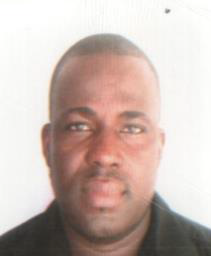
Biography:
Adeyemi A Abati has completed his MBBS in 2004 at Obafemi Awolowo University Teaching Hospital, Nigeria. He was trained at the Department of Infectious Diseases during his Residency. He has completed his Master’s degree in Public Health from the same institution and currently, he is a PhD candidate. He currently holds a Certification from Nigerian Board of Internal Medicine for Internal Medicine, Hematology and Infectious Disease and awarded with Developing Leader in Medicine from Nigerian Medical Association in 2010 for his excellent contribution in general treatment and towards the reduction of infectious disease in Nigeria.
Abstract:
Introduction & Aim: In Nigeria, hepatitis C virus (HCV) infection is primarily spread through injection drug use. There is an urgent need to improve access to care for HCV among persons with opioid use disorders who inject drugs. The purpose of our study was to determine the prevalence of HCV, patient characteristics and receipt of appropriate care in a sample of patients treated with buprenorphine for their opioid use disorders in a primary care setting.
Method: This study used retrospective clinical data from the electronic medical record. The study population included patients receiving buprenorphine in the office based opioid treatment (OBOT) clinic within the adult primary medicine clinic at Lagos Medical Centre between October 2008 and August 2015, who received a conclusive HCV AB antibody test within a year of clinic entry. We compared characteristics by HCV serostatus using Pearson's chi-square and provided numbers/percentages receiving appropriate care.
Result: The sample comprised of 300 patients. Slightly less than half of all patients (n=134, 27.7%) were HCV ab positive and were significantly more likely to be older Hausas and Yoruba’s, have diagnoses of post-traumatic stress disorder (PTSD) and bipolar disorder, have prior heroin or cocaine use and be negatively infected. Among the 134 HCV ab positive patients, 126 (67.7%) had detectable HCV ribonucleic acid (RNA) indicating chronic HCV infection; only 8 patients (2.21%) with chronic HCV infection ever initiated treatment.
Conclusion: Nearly half of patients (47.7%) receiving office-based treatment with buprenorphine for their opioid use disorder had a positive hepatitis C virus antibody screening test, although initiation of HCV treatment was nearly non-existent (2.21%).
Shiow-Kang Yen
National Chung Hsing University,Taiwan
Title: Cathodic polarization test coupled with quartz crystal microbalance to investigate the deposition mechanism of Cisplatin on titanium

Biography:
Shiow-Kang Yen has completed his PhD from National Tsing Hua University, Taiwan. He was the Director of Department of Materials Science and Engineering, National Chung Hsing University. He was awarded with the Outstanding Researcher award at National Chung Hsing University in 2004. He has published more than 70 papers in reputed journals.
Abstract:
To reduce the side effects of chemotherapy, target therapies have been spotlighted. In this study, Cisplatin, the drug for cancer treatment, is electrochemically deposited on titanium alloy as vascular stents for the tumor localized therapy by sustaining drug releasing to achieve the cancer cells apoptosis or the prevention of cancer metastasis. Coupled with quartz crystal microbalance, the cathodic polarization tests were conducted to speculate the deposition mechanism of Cisplatin on titanium, the field emission scanning electron microscope and Fourier transform infrared spectroscopy to observe the surface morphology and analyze constituent elements, respectively. A UV visible spectrometer was used to measure drug loading and releasing. It is concluded that the Cisplatin can be successfully deposited on titanium with drug 62.99 μg/cm2, by exchanging Cl- ions which is originally bonded on Cisplatin with OH- ions, is produced by the electrochemical method, finally to form strong hydrogen bonds and attract one another.
Sadaf Batool
Shaukat Khanum Memorial Cancer Hospital ,Pakistan
Title: Reversal of Hartmann's Procedure
Time : 15:10-16:40
Biography:
Sadaf Batool currently working as a Resident Physician at Shaukat Khanum Memorial Cancer Hospital and Research Centre Balochisan, Pakistan. She completed her education from International Islamic University Islamabad, Pakistan and also has done Internship at ISSRA Pakistan.
Abstract:
Introduction & Objective: Hartmann’s procedure is normally performed for left sided colonic pathologies in emergency situations. Restoration of intestinal continuity after Hartmann’s procedure has traditionally been viewed to be technically demanding and associated with significant morbidity and mortality. This study has been done to show reversal rate after Hartmann’s procedure in an Asian population.
Method: Data collected from database showed that 105 patients had undergone Hartmann’s procedure from Jan 2006 to Dec 2015 due to colorectal carcinoma. Patients who subsequently underwent Hartmann’s reversal were identified and their records reviewed retrospectively.
Result: Hartmann’s procedure was done under emergency in 81 patients either due obstruction (65.1%), perforation (9.4%) and anastomotic leak (1.9%). It is done electively in 25 patients mostly due to poor bowel preparation secondary to stenosing nature of tumor. Hartmann’s reversal was done in 56 (52.8%) patients. The reversal was not offered in remaining patients either due to disease recurrence (36.7%), metastasis (26.5%), loss of follow up (28.5%) or others (8.1%).The median interval between resection and reversal was 32 weeks.
Conclusion: In our population, Hartmann’s procedure is more commonly performed for colorectal cancer under emergency situations. Reversal rate is 52.8% and the most common reasons for not reversing the disease are either locoregional recurrence or distant metastasis.
- Immunology|Hemato- Immunology & Stem Cell Research|Cancer And Alternative Medicine
Session Introduction
Jian Wu
Southeast University, China
Title: SALP, A New Single-Stranded DNA Library Preparation Method Especially Useful For The High-Throughput Characterization Of Chromatin Openness States
Time : 11:25-11:55
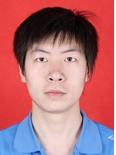
Biography:
Jian Wu has received his Master’s degree from Nanjing Normal University in 2013. He is presently a PhD candidate of the State Key Laboratory of Bioelectronics, Southeast University, China.
Abstract:
Based on a novel kind of single strand adaptor (SSA), this study developed a new method to construct next-generation sequencing (NGS) library, named as SALP, representing single strand adaptor library preparation. The key creativity of the method lies in the design and verification of a special adaptor that can be efficiently linked to the 3’ end of single-stranded DNA, which is a double-stranded oligonucleotide with a 3’ overhang of 3 random nucleotides. This method can start with the denatured DNAs or chromatins fragmented by different methods such as Tn5 tagmentation, enzyme digestion and sonication. When applied to Tn5-tagmented chromatin, SALP overcomes the key limitation of the current ATAC-seq method and develops a high-throughput NGS library construction and sequencing approach, SALP-seq, which can be used to comparatively characterize the chromatin openness state of multiple cells simply and unbiasedly. In this way, the comparative chromatin openness states of four different cell lines, including GM12878, HepG2, HeLa and 293T, were successfully characterized. This study also demonstrated that SALP-seq could characterize the chromatin openness states with 105 to 500 cells, indicating the high sensitivity of SALP-seq in characterizing chromatin state of cells. SALP could have wide applications in the future biological sciences and biomedicine.
Biography:
Sonia De Francesco is currently working as a Professor in the Unit of Onco-Ophthalmology in University of Siena, Italy. She has published 69 research papers.
Abstract:
Purpose: To report the efficacy of combined intravitreal chemotherapy (IViC) and intra-arterial chemotherapy (IAC) for the treatment of advanced stage retinoblastoma.
Method: The medical records of 20 patients affected by unilateral advanced retinoblastoma (Reese-Ellsworth stage Vb/D of ABC classification). After clinical and ophthalmoscopic evaluation, they underwent MRI to exclude local and CNS dissemination. The IAC was given to treat retinal masses and intravitreal injections to treat vitreous seeding. Patients had received two cycles (six infusions) of IAC and from six up to ten Melphalan injections into the vitreous, with an interval of 7-10 days between them.
Result: All patients underwent to bimonthly MRI examination, during treatment and every 3 months for 1 year after last injection, to exclude orbital dissemination. Successful control (57.8%) of tumor masses and vitreous seeds was achieved in all cases at 12 up to 60 months follow-up. No permanent complications have been reported. Transient complications disappeared throughout the months. No intraocular or orbital tumor recurrence or retinoblastoma metastases were observed.
Conclusion: Sequential IAC and IViC remains a good tool to provide retinal and vitreous seed control in advanced stage disease.
Farhan Mehedi
University Of Nottingham, United Kingdom.
Title: Vascular Endothelial Growth Factor (VEGF) Splice Isoforms May Hold The Key To Targeting Tumour Angiogenesis In Oesophageal Cancer

Biography:
Farhan Mehedi has completed his MBBS from the University of Dhaka and Post-graduation from the University of Nottingham, UK. He is currently a Specialist Trainee Doctor at National Health Service in United Kingdom. He has multiple publications in reputed journals. His research interest is in clinical, academic and scientific areas of oncology.
Abstract:
Background & Aim: Angiogenesis is principally induced by vascular endothelial growth factor A (VEGF-A). However, the use of VEGF-A inhibitors in the treatment of esophageal cancer (e.g. Bevacizumab) has not proven efficacious in clinical trials. It has subsequently been shown that splicing of the terminal exon of VEGF-A pre-mRNA generates two separate isoforms: Pro-angiogenic VEGF165a and anti-angiogenic VEGF165b. These isoforms are balanced to regulate angiogenesis by the splicing factor SRSF1, phosphorylated by serine-arginine protein kinase1 (SRPK1). The aim of this study was to investigate expression of VEGF-A, its isoforms and SRPK1 in esophageal cancer and their association with micro vessel density (MVD) and patient survival. Understanding the role of SRPK1 and VEGF-A splice isoforms in the regulation of esophageal cancer angiogenesis may provide a new and potentially efficacious target for anti-angiogenic therapy.
Method: Tumor samples from 36 patients with esophageal adenocarcinoma undergoing curative resection following neo-adjuvant chemotherapy were examined using immunohistochemistry for VEGF-A, VEGF165a, VEGF165b, CD31 (for MVD) and SRPK1. Digital droplet PCR was used to quantify SRPK1 levels at the gene level.
Result: VEGF-A was not associated with MVD. There was a high (pro-angiogenic) VEGF165a/VEGF165b ratio in the majority of the esophageal cancers examined. VEGF165a expression was positively correlated with SRPK1 expression (p=0.01). There was a positive correlation between the pro-angiogenic (VEGF165a dominant) esophageal cancers, MVD and poor overall survival. However, this did not reach statistical significance.
Conclusion: The dominance of the pro-angiogenic VEGF splice isoform and the splicing factor SRPK1 show greater correlation with esophageal cancer angiogenesis and disease survival than the general target of VEGF-A. Further investigation of the control and potential inhibition of this angiogenic pathway in esophageal cancer is required.
Priyank Sinha
Royal Hallamshire Hospital, United Kingdom
Title: Metabolic Targeting Of Glioblastoma Cells
Biography:
Priyank Sinha has worked as a Research Fellow in Leeds Institute of Molecular Medicine (2010-2012). Currently he is working as a STR Neurosurgeon in Royal Hallamshire Hospital, NHS Foundation, London, United Kingdom. His Research interest is in neurosurgery.
Abstract:
Brain tumor accounts for less than 2% of all primary cancers. However, still 1860 new cases of malignant gliomas are diagnosed each year in England and Wales. Standard care of treatment for patients with glioblastoma is surgery followed by adjuvant radiotherapy and chemotherapy. However, glioblastoma is a highly aggressive and infiltrating tumor and in spite of advances in radiotherapy, chemotherapy and surgical technique, there has not been significant improvement in patient survival. As cure for GBM remain elusive, it is important to identify new treatment modalities as well as modify existing therapies to possibly change malignant gliomas from a deadly disease into a chronic one. In this study, we initially investigated the effect of glucose deprivation on adult glioma cell viability. We have shown that glucose deprivation induced glioma cell death in vitro. We have also shown that free radical scavenger N-acetylcysteine and methyl pyruvate suppressed glucose deprivation induced cell death. We have shown that glucose deprivation induced cell death is not mediated by apoptosis, autophagy or necrosis. Glucose deprivation led to energetic and endoplasmic reticulum (ER) stress in glioma cells. We have also shown that hypoxia rescued glucose deprivation induced cell death whereas glutamine withdrawal had no effect on glucose deprivation induced cell death. We have shown that glucose deprivation and hypoxia promote glioma cell migration. We then showed that Metformin significantly enhanced glucose deprivation induced cell death which was not mediated by apoptosis, autophagy, necrosis or oxidative stress. We have also shown that AMPK mimic AICAR also promoted glucose deprivation induced cell death whereas 2-deoxyglucose (2DG) suppressed glucose deprivation induced cell death. We have also shown that Metformin potentiated glucose deprivation induced energetic stress whereas it suppressed ER chaperone protein GRP78. We have shown that Metformin and 2DG combination led to significant cell death in glioma cells which were caspase independent and not mediated by oxidative stress. Finally, we have also showed that Metformin potentiated 2DG mediated pAMPK upregulation whereas it down-regulated 2DG mediated autophagy and ER chaperone protein GRP78 to induce cell death.
Qiao Li
University Of Michigan Comprehensive Cancer Center, USA
Title: Generation And Application Of Cancer Stem Cell Vaccine In The Adjuvant Setting

Biography:
Qiao Li has been involved in both animal studies and clinical trials in cancer immunotherapy. His laboratory research interests focus on the development of cancer immunotherapy using immune cells, such as T cells, B cells and dendritic cells (DCs). Mechanistically, his novel CSC vaccination strategy conferred host both antibody responses and CTL functions against cancer stem cells which resulted in significantly reduced number of cancer stem cells in the treated host.
Abstract:
Effective prevention of local and distant tumor recurrence remains a significant challenge. The existence of micro metastasis at the time of tumor resection represents an even greater therapeutic challenge, since 90% of tumor deaths are due to tumor metastasis. There is increasing evidence that many cancers are driven and maintained by cancer stem cells (CSCs) which contribute to tumor recurrence and metastasis. Targeting CSCs may thus increase the therapeutic efficacy of current cancer treatment. We described a strategy to target CSCs using CSC-dendritic cell (DC) vaccination. However, the efficacy of CSC targeted therapeutics may be greatest when they are deployed in the adjuvant setting. In this study, two mouse models were utilized: Established s.c. SCC7 tumors were surgically removed from mice followed by treatment using ALDH (high) SCC7 CSC-DC vaccine, which significantly reduced local tumor relapse and prolonged animal survival. This effect was significantly augmented by simultaneous administration of anti-PD-L1 mAb. In the minimal disease setting of D5 melanoma, ALDH (high) CSC-DC vaccination significantly inhibited tumor growth, reduced spontaneous lung metastases resulting in increased survival. CCR10 and its ligands were down-regulated on ALDH (high) D5 CSCs and in lung tissues, respectively in animals subjected to ALDH (high) D5 CSC-DC vaccination. Down-regulation of CCR10 by siRNA significantly blocked tumor cell migration in vitro and metastasis in vivo. T cells harvested from ALDH (high) D5 CSC-DC vaccinated animals selectively killed the ALDH (high) D5 CSCs. As a result, CSC-DC vaccination significantly decreased the percentage of ALDH (high) cells in residual tumors. These data indicate that, when used in an adjuvant setting, ALDH (high) CSC-DC vaccines effectively inhibit local tumor recurrence, reduce spontaneous lung metastasis and prolong animal survival; compared with traditional DC vaccines and that simultaneous PD-L1 blockade can significantly enhance this effect. This study has highlighted the potential application of cancer stem cell vaccine in the adjuvant setting.
Biography:
Prakash Kinthada is a Professor of Chemistry Department at Sri Vidyanikethan Engineering College, JNTU University in Ananthapur, Tirupathi, India.
Abstract:
My talk would mainly encompass different transition metal complexes/organometallic compounds that are presently used as drugs, especially anticancer and anti-HIV drugs, apart from anti-inflammatory, antimicrobial, antibacterial and diseases like arthritis and Parkinson’s disease, etc. The talk would mainly focus on the use of medicinal chemistry and its application to drug design and development in pharmaceutical industry, especially transition metal complexes and organometallic compounds viz. gold, platinum, palladium and ruthenium apart from copper, cobalt, iron, nickel, zinc, cadmium, etc. We have synthesized and characterized several phytochemicals from traditional medicinal plants and isolated some phytochemicals and made the corresponding oximes, thiosemicarbazones and substituted thiosemicarbazones as ligands and synthesized, characterized, structurally elucidated their transition metal complexes especially with gold, platinum, palladium, ruthenium, copper, etc. and studied their anticancer activity, nuclease activity, etc. and tested their potential as anticancer drugs. The main aim of our extensive/preclinical pharmaceutical development program is to investigate the use of these extremely novel small molecules-metal complexes/compounds of phytochemicals, flavonoids, etc. The main aim of our research is design, development and synthesis of transition metal complexes/ organometallic compounds that would certainly help to bring this force of nature from bench to bedside and enhance cancer killing with less toxic effects and would certainly lead to initiation of clinical trials.
Nina Zaitseva
FSC for Medical and Preventive Health Risk Management Technologies, Russia
Title: Early immune state violations in children associated with low concentrations of N-nitrosamines in blood
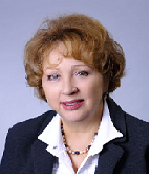
Biography:
Nina Zaitseva is a Fellow of the Russian Academy of Sciences and Scientific Director of the Federal Scientific Center for Medical and Preventive Health Risk Management Technologies, Russia. Her research interests are in fundamental and applied aspects of human ecology, mechanisms of environmental impact on human health, health risk assessment and medical and preventive technologies of health risk reduction. She has published more than 400 papers in reputed journals and has been serving as an Editorial Board Member of field-oriented Russian journals.
Abstract:
The concentration of N-nitrosamines (N-nitrosodimethylamine and N-nitrosodiethylamine) was measured in blood samples from children after consumption of drinking water with high content of nitrates (main group) and water meeting health standards (reference group). N-nitrosodimethylamine level in the blood from children of the main group differed from that in the reference group by 2.6 times (0.00026±0.00012 and 0.0001±0.00092 mg/dm3, respectively; p<0.05). The specific immune response to N-nitrosodimethylamine exposure was manifested in an increase in the level of specific serum IgG (2 times higher than that in the reference group). An increase in the specific sensitivity to N-nitrosodimethylamine (by the criterion of IgG) was observed in 60.7% subjects. A correlation was found between an increase in the level of IgG to N-nitrosodimethylamine and rise in the concentration of N-nitrosodimethylamine in the blood (R2=0.35; p=0.021). Under these conditions the spontaneous and induced production of arachidonic acid metabolites (leukotrienes) increased by 2.1 times, while the expression of p53 transcription factor (responsible for oncosuppression) decreased by 1.9 times as compared to those in the reference group (p<0.05).

Biography:
Ryan S Robetorye has received his MD and PhD degrees from Baylor College of Medicine in Houston, Texas. He is board certified in Clinical Pathology, Hematology and Molecular Genetic Pathology and currently works as a Consultant at the Mayo Clinic in Phoenix, Arizona. He currently serves as the Medical Director of the Clinical Laboratories at the Mayo Clinic. His research interests primarily involve hematological malignancies and molecular diagnostics involving gene expression profiling and next-generation sequencing.
Abstract:
Diffuse Large B-Cell Lymphoma (DLBCL) is the most common type of non-Hodgkin lymphoma, comprising approximately 25-30% of adult non-Hodgkin lymphomas in western countries and consists of a clinically heterogeneous group that exhibits similarities in morphology and immunophenotype. However, it was found that Gene Expression Profiling (GEP) could further classify DLBCLs into distinct molecular subgroups based on Cell-of-Origin (COO), including the Germinal Center B-cell type (GCB), Activated B-Cell type (ABC), or Unclassified (UNC) type, and that these subtypes had important prognostic significance, such that patients with ABC type DLBCL exhibited a significantly worse outcome when treated with R-CHOP (Rituximab Plus Cyclophosphamide, Doxorubicin, Vincristine and Prednisone) chemotherapy regimens. However, this classification method required the use of fresh or fresh-frozen tissue for GEP COO assignment using the Affymetrix microarray platform (Santa Clara, CA) and was not practical for everyday clinical use. This led to the development of more practical and less expensive immunohistochemistry-based methods for assignment of COO, with the Hans algorithm being the most popular because it required only a small number of immunohistochemical stains (CD10, BCL6 and MUM1) to classify cases as GCB or non-GCB DLBCL subtypes and could also utilize readily available Formalin-Fixed Paraffin-Embedded (FFPE) tissue. However, immunohistochemical assignment of DLBCL COO suffers from poor reproducibility and agreement with the gold standard GEP assay. In order to make molecular COO assignment of DLBCLs more practical, accurate and reproducible, a GEP assay was developed for COO assignment using FFPE tissue by the Lymphoma/Leukemia Molecular Profiling Project (LLMPP), known as the Lymph2Cx assay. This assay uses a 20-gene panel and includes eight genes overexpressed in ABC, seven genes overexpressed in GCB and five housekeeping genes. This 20-gene panel demonstrated more than 95% concordance of COO assignment when compared with the original microarray-based assay developed using frozen tissue samples, making it a viable alternative for testing in a conventional clinical molecular diagnostic laboratory setting. We developed the first clinical GEP assay and validated to perform COO assignment of DLBCL in a College of American Pathologists/Clinical Laboratory Improvement Amendments (CAP/CLIA)-certified molecular diagnostics laboratory in the United States and have demonstrated how this assay can be incorporated into the routine workup of DLBCL cases through analysis of over 100 DLBCL cases using the Lymph2Cx clinical assay.
